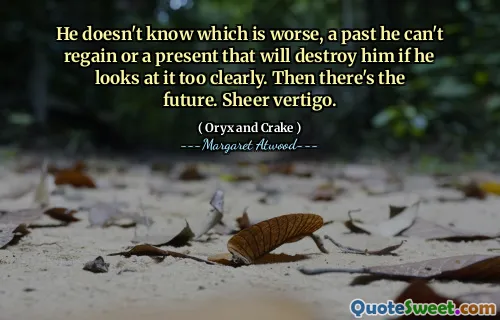Jimmy, look at it realistically. You can't couple a minimum access to food with an expanding population indefinitely. Homo sapiens doesn't seem to be able to cut himself off at the supply end. He's one of the few species that doesn't limit reproduction in the face of dwindling resources. In other words - and up to a point, of course - the less we eat, the more we fuck.How to do you account for that? said JimmyImagination, said Crake. Men can imagine their own deaths...human beings hope they can stick their souls into someone else...and live on forever.
In the novel "Oryx and Crake" by Margaret Atwood, Crake explains to Jimmy the unsustainable nature of human reproduction in relation to limited resources. He highlights that mankind, unlike other species, does not restrain its reproductive habits even as food becomes scarce. This observation points to a fundamental flaw in humanity's approach to survival, as the increase in population cannot be maintained alongside decreasing food supplies.
Crake suggests that human beings cling to hope and imagination, even envisioning ways to escape death or prolong existence. This longing for immortality reflects a deeper psychological need to transcend limitations, implying that people are driven by a desire for continuity even in the face of dire circumstances. The conversation underscores a critical commentary on human nature and the fragile balance between resource availability and population growth.






